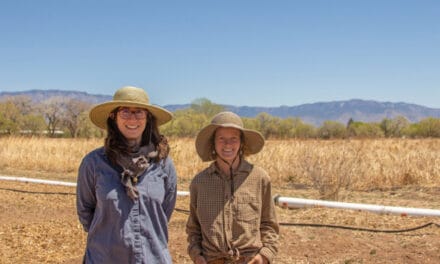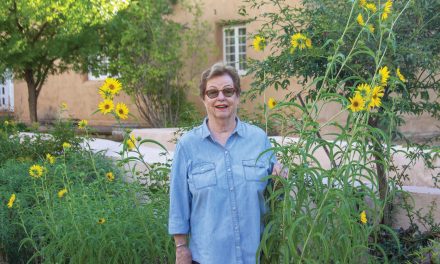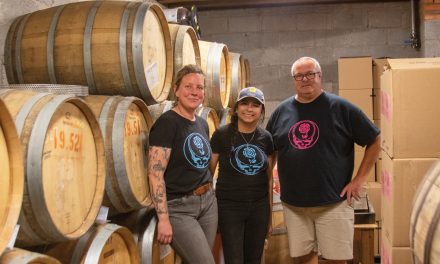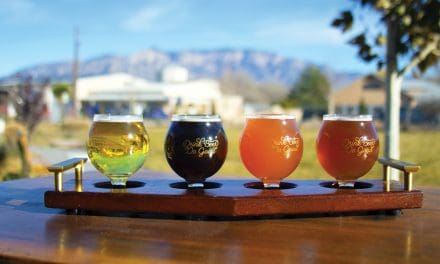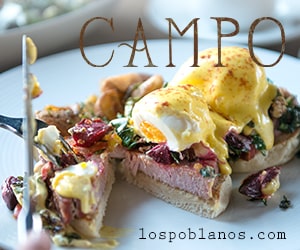An Interview with Owners Lynda Burd and Jerry Burd
Local Hero: Best Winery
Photos by Stephanie Cameron

Black Mesa Winery produces wines and ciders using 100 percent New Mexico grapes and apples. All fruit is hand sorted, pressed, fermented, and bottled at the winery. They use their own fruit from over three acres of vineyards and purchase grapes and apples from across New Mexico. Most of their wines are sold in Velarde, but they also have a New Mexico distributor and a wine club, and ship to forty states.
How did you get to where you are now? What’s the backstory, and what was the moment that brought you to your current work?
We are originally from Colorado. We fell in love with wine in California, then moved to Oregon to learn to grow grapes and make wine. After five years, it was time to get out of the rain and back to dryer weather and a higher elevation. The art of Santa Fe and Taos brought us to New Mexico. We’ve owned and operated Black Mesa Winery for twenty years.
What is unique about your winemaking? Does every barrel still get its own name?
After five thousand years, there is not a lot of “new” in winemaking. We focus on hands-on processing, using minimal equipment—and always at gentle speeds. We concentrate on small batches of wine;
usually, less than one hundred cases of each blend are bottled every year.
We have more than two hundred barrels of wine in a mixture of oak from France and American oak from Minnesota. Wine and its movement require close record keeping. We have named the barrels after mountains in Colorado, grandkids, our cats and dogs, and many of the small towns in northern New Mexico. It works better than a barcode!
Thus far, it’s been a hot, dry summer. How do you keep your vineyards happy in these conditions?
Our three acres of vines are drip-irrigated. The system is set up to water three times each week, with running time based on the heat and amount of rain. This year we have watered more than any other year.
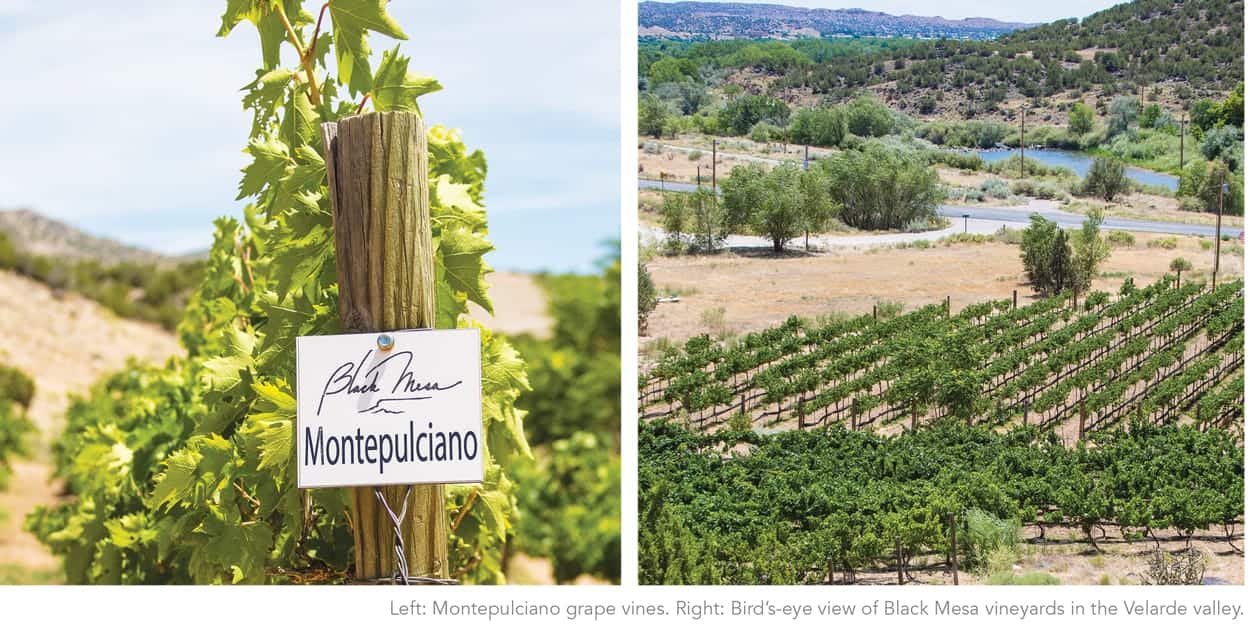
Black Mesa creates a number of unique blends. What are your favorite varietals to grow? What are your favorite varietals to source from other growers?
Our unique red blend, Coyote, is made with cabernet sauvignon and zinfandel. Our Antelope is made from the Bordeaux grapes: cabernet sauvignon, cabernet franc, and merlot. Abiquiu White comes from riesling, traminette, and chenin blanc grapes grown at Las Parras de Abiquiu.
Here on the property, we grow mainly Montepulciano, pinot gris, and albariño; cabernet sauvignon, zinfandel, and syrah come from Deming; and tempranillo, malbec, and barbera come from Belen. We also purchase small batches from neighbors here in the Velarde Valley.
Wineries weren’t allowed to reopen in time with breweries, and some winemakers have reported grappling with surplus wine. How have you fared during the pandemic?
The pandemic has hit us hard, as it has everyone in the wine industry—from grape growers to tasting rooms. Our solution has been more online opportunities [for customers] to purchase wines and receive discounted or free shipping. Recently we’ve been offering outside tastings (but no glasses).
We’ve seen an increase in new people stopping by. Many are locals who just haven’t had the time in the past. Quite a few are people just driving to get out of the house, or out of the big city.
We also do an online tasting, called Black Mesa Buzz, with our winemaker Craig Dunn every other Thursday. For those doing their own Zoom with family and friends, we have a special that includes wine, glasses, and pistachios. It’s been fun.
Starting Friday, July 31, we are hosting a farmers market, Farm Friday, here at the winery.
Describe a perfect fall day of eating and drinking in Velarde.
Velarde is beautiful in the fall. The smell of piñon burning, the golden leaves on the trees lining the Rio Grande, the crisp fall air—it’s the perfect place to be. Often, the odor of fermenting grapes is a part of the experience. When people ask about the grape being fermented, it’s an opportunity to taste a wine of an earlier vintage.
We offer covered picnic tables for those who want to bring their own lunch or snacks. They can watch the hummingbirds, take a walk in the vineyards or around the labyrinth, or follow our petroglyph trail.
Is there anything else you’d like to share with edible readers?
Being local is important to us. We support the Mesa Prieta Petroglyph Project as we have petroglyphs on our property. We are involved with the Española Humane animal shelter—we have eleven cats and two dogs, with strays showing up here on a regular basis—and are active in the Santa Fe Opera’s Española Valley Opera Guild. Our wines and ciders are registered with New Mexico True. Most of our in-store products, from honey to hand sanitizer to hot sauces, are produced in northern New Mexico.
Most important for us is for our visitors to have a relaxing experience here. We want them to enjoy their tastings, take home wines and ciders that are unique to New Mexico, and share the experience of Black Mesa Winery with their friends and families.
1502 NM-68, Velarde, 505-852-2820, blackmesawinery.com
Edible celebrates New Mexico's food culture, season by season. We believe that knowing where our food comes from is a powerful thing. With our high-quality, aesthetically pleasing and informative publication, we inspire readers to support and celebrate the growers, producers, chefs, beverage and food artisans, and other food professionals in our community.





